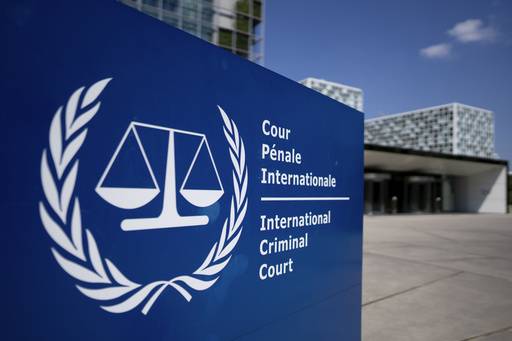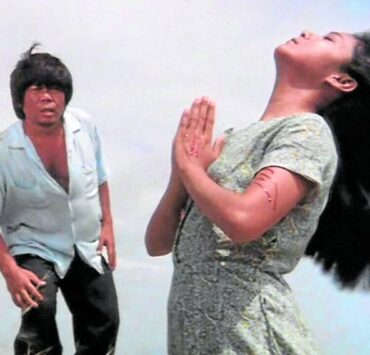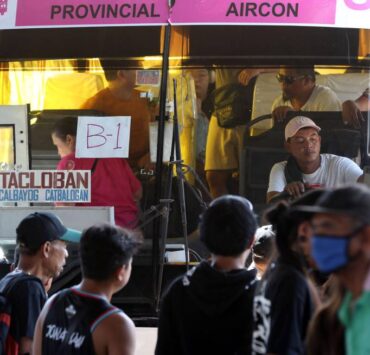ICC chamber eases ID rule for drug war victims

A pre-trial chamber of the International Criminal Court (ICC) said it would accept various types of government IDs for relatives of drug war victims who apply to participate in the proceedings in The Hague.
The chamber is therefore not limiting proof of identity to just either a passport or a national ID, which lawyers for ex-President Rodrigo Duterte had insisted on.
The April 17 decision by the Pre-Trial Chamber (PTC) 1 cleared the way for more “indirect” victims, or the loved ones left behind by those killed in the ruthless war on drugs, to seek recognition and voice out their “views and concerns” to the tribunal.
PTC supported the proposal by the ICC Registry, which provides administrative and judicial support to the court, to consider multiple government IDs in the absence of a passport or a national ID for individuals to be identified as victims in the case against Duterte.
These IDs include, among others, those provided by the Social Security System (SSS) or Government Service Insurance System (GSIS), Professional Regulatory Commission (PRC); or senior citizen and persons with disability cards, National Bureau of Investigation or police clearance, voter’s certification with dry seal and driver’s license.
“The Chamber considers that the Registry has provided sufficient information regarding each document that it proposes to accept as proof of identity for victim applicants, including the issuing entity and samples” according to the 20-page decision.
“This information … already ensures the ‘reliability of the identity verification process and significantly reduces the risk of fraud’.”
Defense objection
Duterte’s legal team opposed the Registry’s proposal, saying that such a wide range of IDs could lead to “misidentification, double-counting and inclusion of false victims.”
But human rights lawyers clapped back, saying that the defense was “out of touch” and “ignorant” of the plight of the thousands of victims who are mostly poor.
Kristina Conti, one of the lawyers assisting the drug war victims, welcomed the PTC’s decision.
The decision on the IDs was among several related to the conduct of the proceedings ahead of the confirmation of charges hearing on Sept. 23 where PTC will decide whether Duterte will face trial.
The former president is charged with murder as a crime against humanity in connection with thousands killed in his war on drugs. He has been detained since March 12 at the Scheveningen prison complex, about 1.5 kilometers from the ICC headquarters.
Disclosure deadline
PTC 1 also directed the prosecution to complete its disclosure of its evidence against Duterte on or before July 1, much earlier than the prosecution’s proposal of 30 days prior to the confirmation of charges hearing.
“This includes all the evidence it intends to rely upon at the confirmation of charges hearing, including the totality of the witness statements and their translations, the exculpatory material that it has identified thus far, and the material falling under rule 77 of the Rules,” it said.
“Any items of evidence submitted after that date will not be taken into account for the purposes of the confirmation of charges hearing.”
Rule 77 of the ICC Rules of Procedure and Evidence sets the rules in the “inspection” by the defense of evidence in the possession or under the control of the prosecution.
These include books, documents, photos and other tangible materials that the prosecutor will use in the confirmation hearing or the trial, that also are relevant to the legal strategy of the defense.
Three themes
In the spirit of fairness, PTC 1 welcomed the prosecution’s proposal to classify the evidence it would turn over to the defense into three “themes:” INCRIM for incriminating; PEXO for potentially exonerating; and R77 for those that are under Rule 77.
“The chamber finds that a thematic organization of disclosure can significantly assist the defense in its preparations,” it said.
The prosecution, led by Karim Khan, earlier told the PTC that it had at least 421 documents, nine photos and nearly 16 hours of audio and video recordings as evidence plus two witnesses who can testify against Duterte in the confirmation hearing.
It said it could add more from approximately 168,575 evidentiary items that it had either reviewed or were currently under review.
Limited scope
The PTC, however, pointed out in Thursday’s decision that the “prosecution should only disclose evidence that is of true relevance to the case and capable of supporting a particular factual allegation.”
It also reminded both the prosecution and the defense that the confirmation hearing “is of a limited scope and should not delve into a mini-trial.”
The prosecution is looking into the killings in Duterte’s war on drugs from Nov. 1, 2011, to March 16, 2019, when the Philippines was a member of the Rome Statute, the treaty that created the ICC.
“While the prosecution is entitled to continue investigating at this stage of the proceedings, neither the disclosure process nor the confirmation of charges may be made conditional on the completion of additional investigations,” according to PTC 1.

















